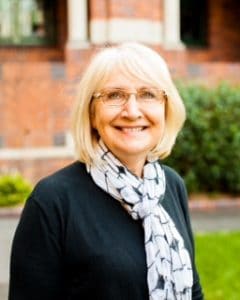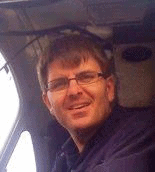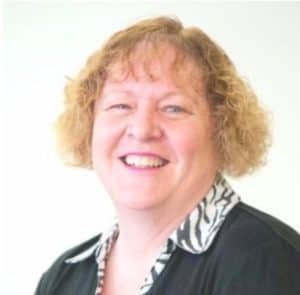The recipient of this award will demonstrate dedication to stillbirth prevention or care of bereaved families. Their work will represent understanding of the issues important to families with preference given to those who engage in collaborative efforts and emerging ideas. This award is available internationally.
 Dr. Vicki Flenady – Professor Vicki Flenady is the Director of the Stillbirth Centre for Research Excellence (Stillbirth CRE), Mater Research –University of Queensland and is a nationally and internationally recognised perinatal epidemiologist. Vicki is well known for her expertise in Cochrane systematic reviews, clinical trials and the development and implementation of high quality clinical practice guidelines. Vicki has a background in midwifery, neonatal intensive care nursing, clinical epidemiology and biostatistics. Vicki’s research focusses on addressing the global health issue of stillbirth. Vicki has been a member of steering committees for two series on stillbirth published in The Lancet which has set the global agenda for stillbirth. The four priority areas of the Stillbirth CRE are: 1) Implementing best practice to address known risk factors for stillbirth; 2) Developing novel methods of identifying the at-risk fetus; 3) Reducing the impact of stillbirth on mothers and families; 4) Implementing national perinatal mortality audit to prevent stillbirths. Global relevance of the Stillbirth CRE outputs is ensured through strong links with international experts of the International Stillbirth Alliance. Vicki is also currently leading two NHMRC funded studies; a large scale cluster randomized controlled trial testing the role of a mobile phone app for women on decreased fetal movements in reducing stillbirth and a multisite study to identify causes of stillbirth and the value of recommended investigations for stillbirth. Through the Perinatal Society of Australia and New Zealand (PSANZ), Vicki leads a collaboration promoting best practice in perinatal mortality through bi-national guidelines and clinician education with a major focus on investigation into the causes of stillbirth and bereavement care.
Dr. Vicki Flenady – Professor Vicki Flenady is the Director of the Stillbirth Centre for Research Excellence (Stillbirth CRE), Mater Research –University of Queensland and is a nationally and internationally recognised perinatal epidemiologist. Vicki is well known for her expertise in Cochrane systematic reviews, clinical trials and the development and implementation of high quality clinical practice guidelines. Vicki has a background in midwifery, neonatal intensive care nursing, clinical epidemiology and biostatistics. Vicki’s research focusses on addressing the global health issue of stillbirth. Vicki has been a member of steering committees for two series on stillbirth published in The Lancet which has set the global agenda for stillbirth. The four priority areas of the Stillbirth CRE are: 1) Implementing best practice to address known risk factors for stillbirth; 2) Developing novel methods of identifying the at-risk fetus; 3) Reducing the impact of stillbirth on mothers and families; 4) Implementing national perinatal mortality audit to prevent stillbirths. Global relevance of the Stillbirth CRE outputs is ensured through strong links with international experts of the International Stillbirth Alliance. Vicki is also currently leading two NHMRC funded studies; a large scale cluster randomized controlled trial testing the role of a mobile phone app for women on decreased fetal movements in reducing stillbirth and a multisite study to identify causes of stillbirth and the value of recommended investigations for stillbirth. Through the Perinatal Society of Australia and New Zealand (PSANZ), Vicki leads a collaboration promoting best practice in perinatal mortality through bi-national guidelines and clinician education with a major focus on investigation into the causes of stillbirth and bereavement care.
 Dr. Alexander Heazell – Dr Alexander Heazell is a clinical lecturer working at the Maternal and Fetal Health Research Centre, University of Manchester. After graduation from the University of Birmingham Medical School in 2000, he commenced clinical training in Obstetrics and Gynaecology. After completing his PhD thesis on placenta dysfunction in preeclampsia, he has focused his research interests around stillbirth and fetal growth restriction. He is particularly interested in the role that placental dysfunction plays in these conditions, and whether understanding the nature of such placental failure can be used to identify pregnancies most at risk of stillbirth. He has also led qualitative research projects to explore professionals and parents’ experiences after stillbirth, with a particular focus on investigations following a stillbirth. Dr Alexander Heazell has over 50 peer-reviewed publications and has co-written the RCOG green-top guidelines for the management of reduced fetal movements. In collaboration with Sands he has initiated the development of a national consent form for perinatal post-mortem and a care pathway for parents who experience a perinatal death. Dr. Heazell also runs a Rainbow Clinic for families who have experienced a stillbirth in a previous pregnancy and serves as the Chair of the International Stillbirth Alliance.
Dr. Alexander Heazell – Dr Alexander Heazell is a clinical lecturer working at the Maternal and Fetal Health Research Centre, University of Manchester. After graduation from the University of Birmingham Medical School in 2000, he commenced clinical training in Obstetrics and Gynaecology. After completing his PhD thesis on placenta dysfunction in preeclampsia, he has focused his research interests around stillbirth and fetal growth restriction. He is particularly interested in the role that placental dysfunction plays in these conditions, and whether understanding the nature of such placental failure can be used to identify pregnancies most at risk of stillbirth. He has also led qualitative research projects to explore professionals and parents’ experiences after stillbirth, with a particular focus on investigations following a stillbirth. Dr Alexander Heazell has over 50 peer-reviewed publications and has co-written the RCOG green-top guidelines for the management of reduced fetal movements. In collaboration with Sands he has initiated the development of a national consent form for perinatal post-mortem and a care pathway for parents who experience a perinatal death. Dr. Heazell also runs a Rainbow Clinic for families who have experienced a stillbirth in a previous pregnancy and serves as the Chair of the International Stillbirth Alliance.
 Baskaran Thilaganathan has been a Professor in Fetal Medicine at St George’s, University of London, since 2008, and before that, from 2005, he was a Reader in Fetal Medicine. He was appointed Director of Fetal Medicine at St George’s Hospital in 1999. He did postgraduate training at King’s College London and the Barts and Homerton Hospitals, culminating in my Membership of the Royal College of Obstetricians and Gynaecologists (MRCOG) (1995), MD in Fetal Medicine (1996) and Certificate of Completion of Training (CCST) (1998). He undertook undergraduate training at King’s College London, where he obtained both BBSc in genetic engineering (1995) and MBBS (1988). Professor Baskaran Thilaganathan’s research interests are in medical and surgical management of high-risk pregnancies with a focus on twin pregnancy, fetal growth, fetal abnormality and preeclampsia. His research methods include uterine Doppler and trophoblast invasion, screening for pre-eclampsia, echocardiography based studies of maternal cardiac adaptation to pregnancy, and clinical studies of twin pregnancies. Professor Thilaganathan has authored one undergraduate and four postgraduate text books in obstetrics and fetal medicine. He is the lead trainer for the Maternal-Fetal medicine sub-speciality training programme at St George’s Hospital, Chairman of the Royal College of Obstetrics and Gynaecology Meetings Committee, and Editor-in Chief of “Ultrasound in Obstetrics and Gynaecology”, the medical journal affiliated to the International Society of Ultrasound in Obstetrics and Gynaecology. He has more than 120 peer-reviewed publications.
Baskaran Thilaganathan has been a Professor in Fetal Medicine at St George’s, University of London, since 2008, and before that, from 2005, he was a Reader in Fetal Medicine. He was appointed Director of Fetal Medicine at St George’s Hospital in 1999. He did postgraduate training at King’s College London and the Barts and Homerton Hospitals, culminating in my Membership of the Royal College of Obstetricians and Gynaecologists (MRCOG) (1995), MD in Fetal Medicine (1996) and Certificate of Completion of Training (CCST) (1998). He undertook undergraduate training at King’s College London, where he obtained both BBSc in genetic engineering (1995) and MBBS (1988). Professor Baskaran Thilaganathan’s research interests are in medical and surgical management of high-risk pregnancies with a focus on twin pregnancy, fetal growth, fetal abnormality and preeclampsia. His research methods include uterine Doppler and trophoblast invasion, screening for pre-eclampsia, echocardiography based studies of maternal cardiac adaptation to pregnancy, and clinical studies of twin pregnancies. Professor Thilaganathan has authored one undergraduate and four postgraduate text books in obstetrics and fetal medicine. He is the lead trainer for the Maternal-Fetal medicine sub-speciality training programme at St George’s Hospital, Chairman of the Royal College of Obstetrics and Gynaecology Meetings Committee, and Editor-in Chief of “Ultrasound in Obstetrics and Gynaecology”, the medical journal affiliated to the International Society of Ultrasound in Obstetrics and Gynaecology. He has more than 120 peer-reviewed publications.
 Moshe Winograd is conducting important and innovative research related to supporting families who have experienced a pregnancy loss. Moshe is looking at whether posttraumatic growth is experienced by women after a pregnancy loss and what predicts it. Moshe has a passion for working collaboratively and in researching new ideas. To date, no one has examined whether family process factors such as cohesion and satisfaction are related to posttraumatic growth, and this is a central piece of Moshe’s research. As well, Moshe chose to use a perinatal grief scale that was developed by a nurse. One of the reasons for this was a recognition of the need to tackle such an important issue from an interdisciplinary and collaborative approach. Nurses are at the front lines of a pregnancy loss at any stage for most women and their partners and are also heavily relied upon by many hospitals to offer post-loss support groups.Moshe had a deep passion for and dedication toward this area of research and has a long term interest in both clinical and research work on pregnancy loss (and more broadly perinatal mental health as well). He will bring new ideas to the field, as informed by his academic psychology background, pastoral and clinical work. Also, as a male working in this area and a bereaved father himself he will offer unique perspective while working well with others across disciplines.
Moshe Winograd is conducting important and innovative research related to supporting families who have experienced a pregnancy loss. Moshe is looking at whether posttraumatic growth is experienced by women after a pregnancy loss and what predicts it. Moshe has a passion for working collaboratively and in researching new ideas. To date, no one has examined whether family process factors such as cohesion and satisfaction are related to posttraumatic growth, and this is a central piece of Moshe’s research. As well, Moshe chose to use a perinatal grief scale that was developed by a nurse. One of the reasons for this was a recognition of the need to tackle such an important issue from an interdisciplinary and collaborative approach. Nurses are at the front lines of a pregnancy loss at any stage for most women and their partners and are also heavily relied upon by many hospitals to offer post-loss support groups.Moshe had a deep passion for and dedication toward this area of research and has a long term interest in both clinical and research work on pregnancy loss (and more broadly perinatal mental health as well). He will bring new ideas to the field, as informed by his academic psychology background, pastoral and clinical work. Also, as a male working in this area and a bereaved father himself he will offer unique perspective while working well with others across disciplines.
 Jane Warland – Dr Warland is a registered midwife and Associate Professor in midwifery at the University of South Australia. Jane is an active researcher in the areas of population health, mental health, and maternal health. Since suffering the unexplained full term stillbirth of her daughter Emma in 1993 she has been a passionate researcher into preventative and modifiable risk factors for stillbirth. She has published a textbook, book chapters and numerous journal articles and has presented her research at many national and international conferences. Jane has a passion for parents’ voices being heard in stillbirth research. She was an integral part of the STARS (Study of Trends and Associated Risks of Stillbirth) Consortium and continues to explore research areas that look at what the families know about their pregnancies.
Jane Warland – Dr Warland is a registered midwife and Associate Professor in midwifery at the University of South Australia. Jane is an active researcher in the areas of population health, mental health, and maternal health. Since suffering the unexplained full term stillbirth of her daughter Emma in 1993 she has been a passionate researcher into preventative and modifiable risk factors for stillbirth. She has published a textbook, book chapters and numerous journal articles and has presented her research at many national and international conferences. Jane has a passion for parents’ voices being heard in stillbirth research. She was an integral part of the STARS (Study of Trends and Associated Risks of Stillbirth) Consortium and continues to explore research areas that look at what the families know about their pregnancies.